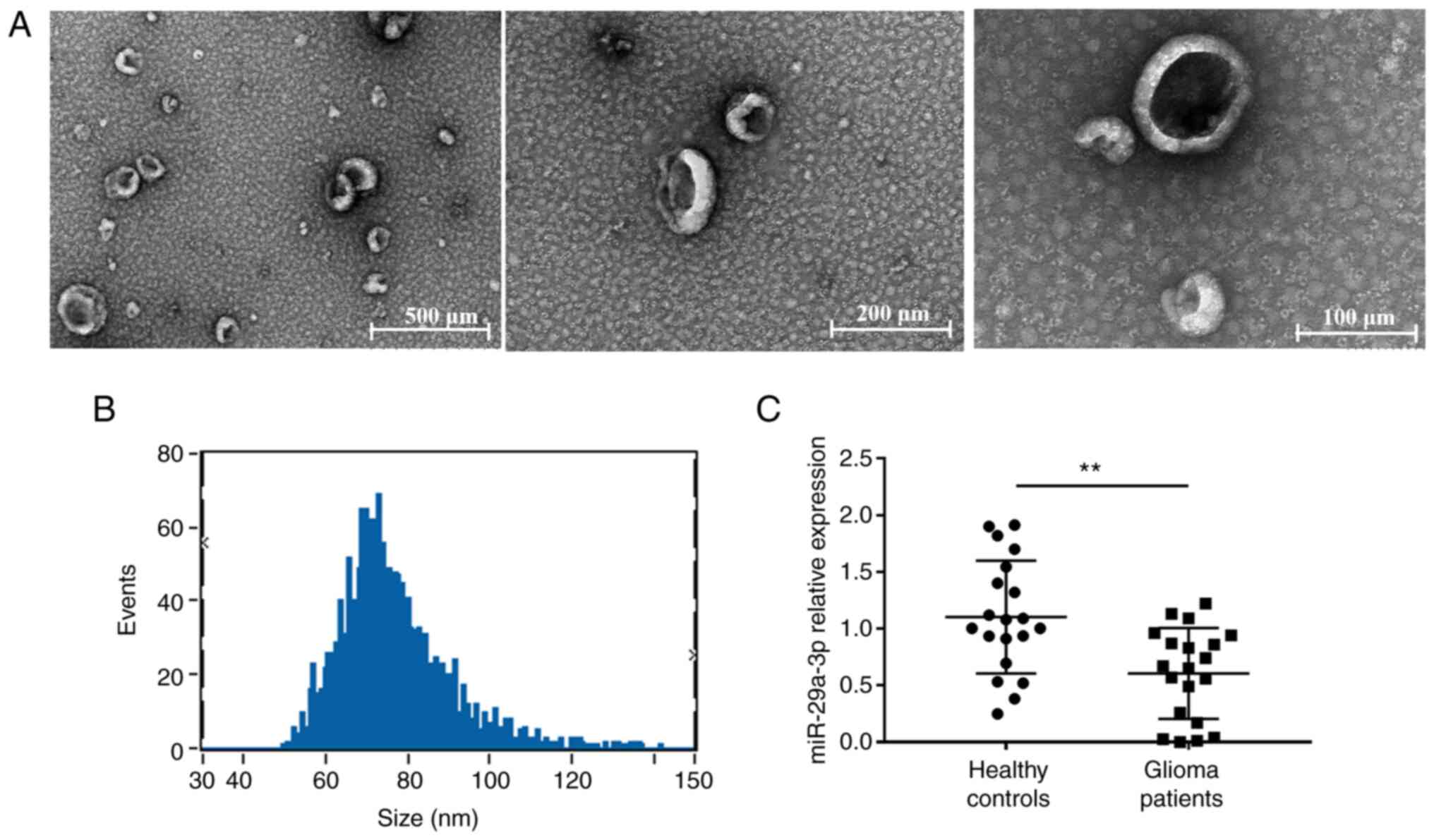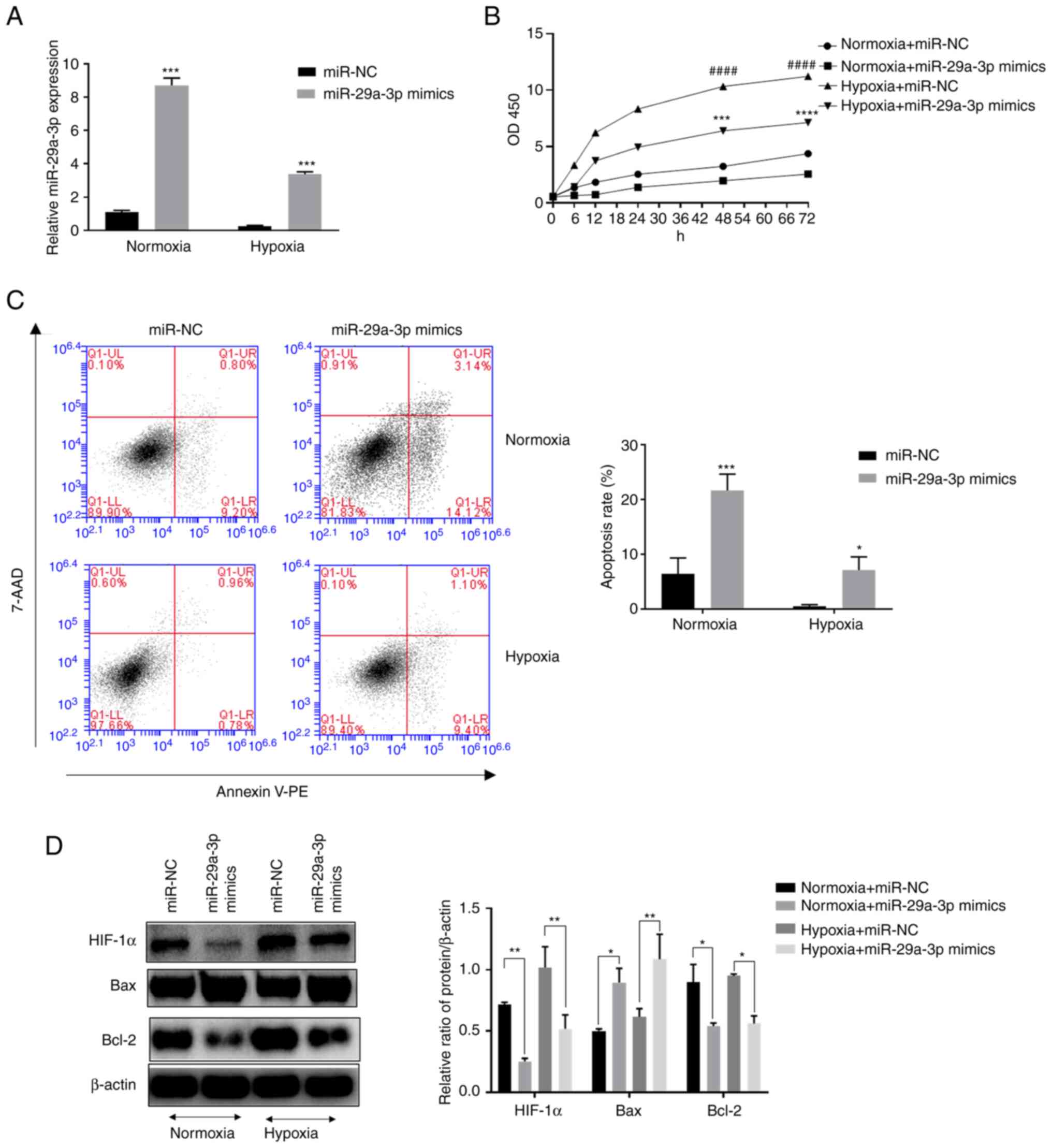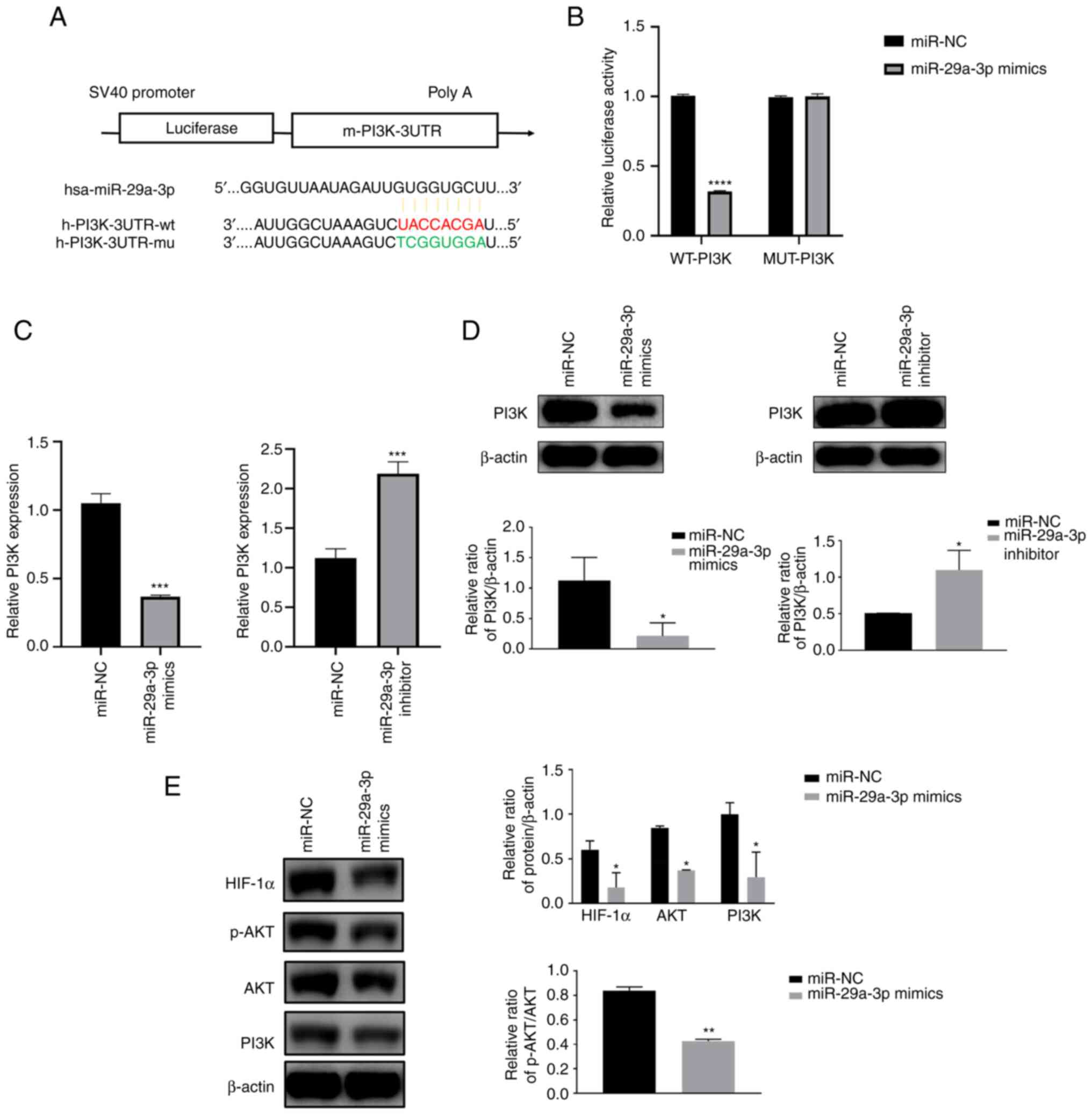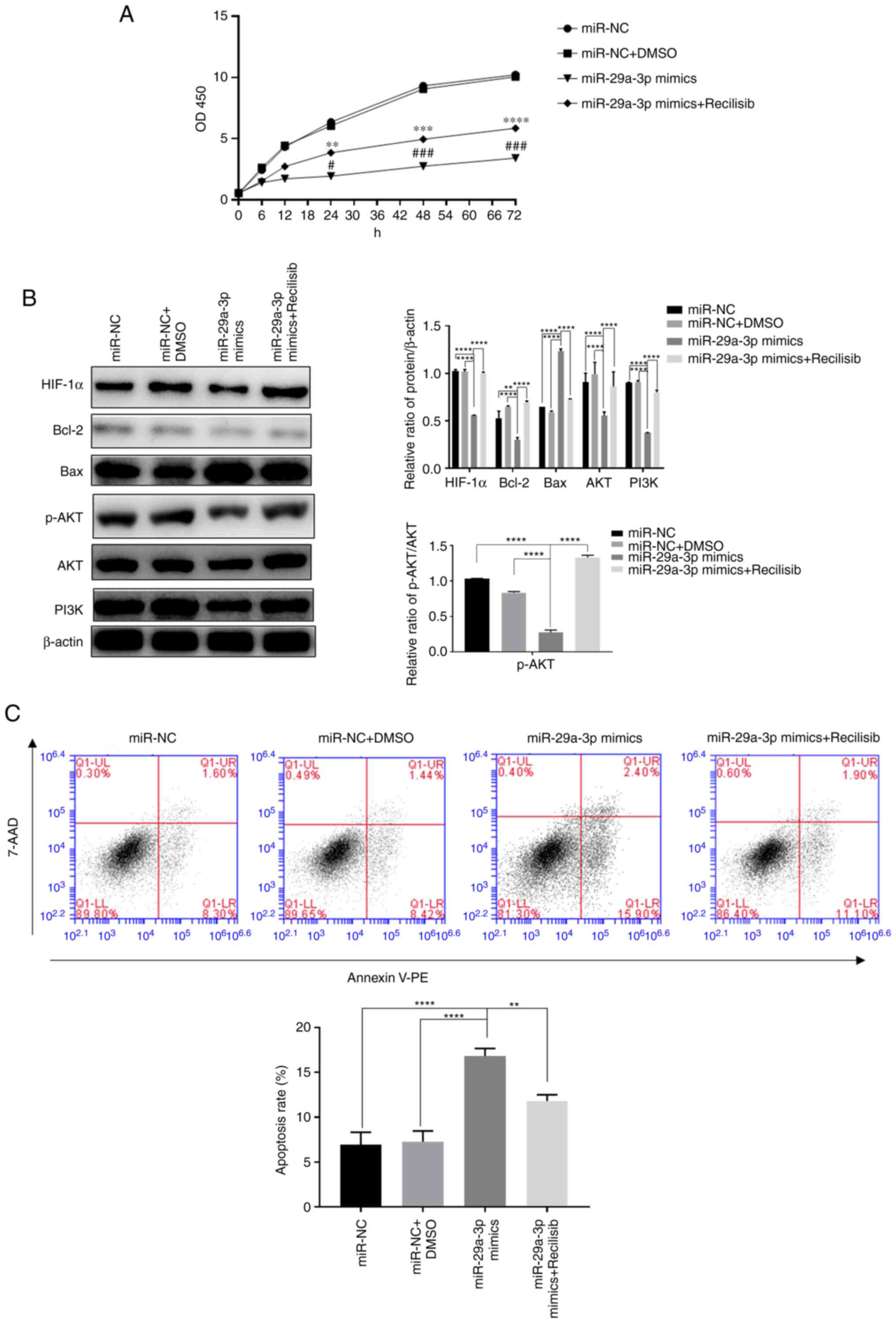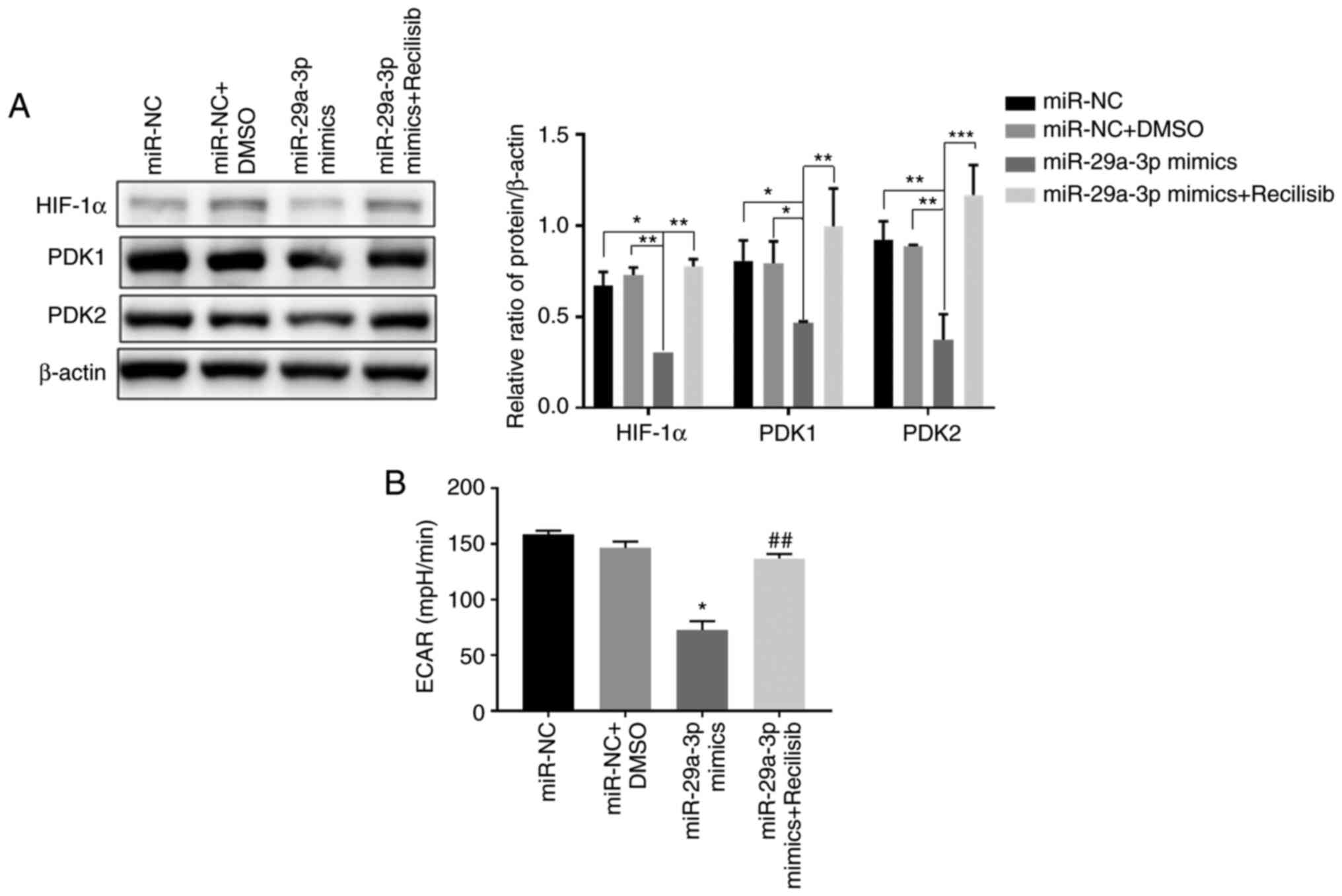|
1
|
Touati S, Djekkoun R, El-Okki ME and Satta
D: Epidemiology and survival analyses of 333 adult glioma patients
from Eastern Algeria (2008–2016). Afr Health Sci. 20:1250–1258.
2020. View Article : Google Scholar : PubMed/NCBI
|
|
2
|
Domènech M, Hernández A, Plaja A,
Martínez-Balibrea E and Balañà C: Hypoxia: The cornerstone of
glioblastoma. Int J Mol Sc. 22:126082021. View Article : Google Scholar
|
|
3
|
Mohlin S, Wigerup C, Jögi A and Påhlman S:
Hypoxia, pseudohypoxia and cellular differentiation. Exp Cell Res.
356:192–196. 2017. View Article : Google Scholar : PubMed/NCBI
|
|
4
|
Tamai S, Ichinose T, Tsutsui T, Tanaka S,
Garaeva F, Sabit H and Nakada M: Tumor microenvironment in glioma
invasion. Brain Sci. 12:5052022. View Article : Google Scholar : PubMed/NCBI
|
|
5
|
Ke Q and Costa M: Hypoxia-inducible
factor-1 (HIF-1). Mol Pharmacol. 70:1469–1480. 2006. View Article : Google Scholar : PubMed/NCBI
|
|
6
|
Saadatpour L, Fadaee E, Fadaei S, Nassiri
Mansour R, Mohammadi M, Mousavi SM, Goodarzi M, Verdi J and Mirzaei
H: Glioblastoma: Exosome and microRNA as novel diagnosis
biomarkers. Cancer Gene Ther. 23:415–418. 2016. View Article : Google Scholar : PubMed/NCBI
|
|
7
|
Whiteside TL: Tumor-derived exosomes and
their role in cancer progression. Adv Clin Chem. 74:103–141. 2016.
View Article : Google Scholar : PubMed/NCBI
|
|
8
|
Yu X, Odenthal M and Fries JWU: Exosomes
as miRNA carriers: Formation-function-future. Int J Mol Sci.
17:20282016. View Article : Google Scholar : PubMed/NCBI
|
|
9
|
Wang JY, Zhang Q, Wang DD, Yan W, Sha HH,
Zhao JH, Yang SJ, Zhang HD, Hou JC, Xu HZ, et al: MiR-29a: A
potential therapeutic target and promising biomarker in tumors.
Biosci Rep. 38:BSR201712652018. View Article : Google Scholar : PubMed/NCBI
|
|
10
|
Yan B, Guo Q, Fu FJ, Wang Z, Yin Z, Wei YB
and Yang JR: The role of miR-29b in cancer: Regulation, function,
and signaling. Onco Targets Ther. 8:539–548. 2015.PubMed/NCBI
|
|
11
|
Livak KJ and Schmittgen TD: Analysis of
relative gene expression data using real-time quantitative PCR and
the 2(−Delta Delta C(T)) method. Methods. 25:402–408. 2021.
View Article : Google Scholar : PubMed/NCBI
|
|
12
|
Yahara K, Ohguri T, Udono H, Yamamoto J,
Tomura K, Onoda T, Imada H, Nishizawa S and Korogi Y: Radiotherapy
using IMRT boosts after hyperbaric oxygen therapy with chemotherapy
for glioblastoma. J Radiat Res. 58:351–356. 2017. View Article : Google Scholar : PubMed/NCBI
|
|
13
|
Zhang S, Luo X, Wan F and Lei T: The roles
of hypoxia-inducible factors in regulating neural stem cells
migration to glioma stem cells and determinating their fates.
Neurochem Res. 37:2659–2666. 2012. View Article : Google Scholar : PubMed/NCBI
|
|
14
|
Cheng H, Chang S, Xu R, Chen L, Song X, Wu
J, Qian J, Zou Y and Ma J: Hypoxia-challenged MSC-derived exosomes
deliver miR-210 to attenuate post-infarction cardiac apoptosis.
Stem Cell Res Ther. 11:2242020. View Article : Google Scholar : PubMed/NCBI
|
|
15
|
Jiang H, Zhao H, Zhang M, He Y, Li X, Xu Y
and Liu X: Hypoxia induced changes of exosome cargo and subsequent
biological effects. Front Immunol. 13:8241882022. View Article : Google Scholar : PubMed/NCBI
|
|
16
|
Sun H, Meng Q, Shi C, Yang H, Li X, Wu S,
Familiari G, Relucenti M, Aschner M, Wang X and Chen R:
Hypoxia-inducible exosomes facilitate liver-tropic premetastatic
niche in colorectal cancer. Hepatology. 74:2633–2651. 2021.
View Article : Google Scholar : PubMed/NCBI
|
|
17
|
Kumar A and Deep G: Exosomes in
hypoxia-induced remodeling of the tumor microenvironment. Cancer
Lett. 488:1–8. 2020. View Article : Google Scholar : PubMed/NCBI
|
|
18
|
Yaghoubi S, Najminejad H, Dabaghian M,
Karimi MH, Abdollahpour-Alitappeh M, Rad F, Mahi-Birjand M,
Mohammadi S, Mohseni F, Sobhani Lari M, et al: How hypoxia regulate
exosomes in ischemic diseases and cancer microenvironment? IUBMB
Life. 72:1286–1305. 2020. View
Article : Google Scholar : PubMed/NCBI
|
|
19
|
Sheehan C and D'Souza-Schorey C:
Tumor-derived extracellular vesicles: Molecular parcels that enable
regulation of the immune response in cancer. J Cell Sci.
132:jcs2350852019. View Article : Google Scholar : PubMed/NCBI
|
|
20
|
Indira Chandran V, Welinder C, Gonçalves
de Oliveira K, Cerezo-Magaña M, Månsson AS, Johansson MC,
Marko-Varga G and Belting M: Global extracellular vesicle proteomic
signature defines U87-MG glioma cell hypoxic status with potential
implications for non-invasive diagnostics. J Neurooncol.
144:477–488. 2019. View Article : Google Scholar : PubMed/NCBI
|
|
21
|
van der Vos KE, Abels ER, Zhang X, Lai C,
Carrizosa E, Oakley D, Prabhakar S, Mardini O, Crommentuijn MH,
Skog J, et al: Directly visualized glioblastoma-derived
extracellular vesicles transfer RNA to microglia/macrophages in the
brain. Neuro Oncol. 18:58–69. 2016. View Article : Google Scholar : PubMed/NCBI
|
|
22
|
Cai Q, Zhu A and Gong L: Exosomes of
glioma cells deliver miR-148a to promote proliferation and
metastasis of glioblastoma via targeting CADM1. Bull Cancer.
105:643–651. 2018. View Article : Google Scholar : PubMed/NCBI
|
|
23
|
He PY, Yip WK, Chai BL, Chai BY, Jabar MF,
Dusa N, Mohtarrudin N and Seow HF: Inhibition of cell migration and
invasion by miR-29a-3p in a colorectal cancer cell line through
suppression of CDC42BPA mRNA expression. Oncol Rep. 38:3554–3566.
2017.PubMed/NCBI
|
|
24
|
Wang J, Chen X, Xie C, Sun M, Hu C, Zhang
Z, Luan L, Zhou J, Zhou J, Zhu X, et al: MicroRNA miR-29a inhibits
colon cancer progression by downregulating B7-H3 expression:
Potential molecular targets for colon cancer therapy. Mol
Biotechnol. 63:849–861. 2021. View Article : Google Scholar : PubMed/NCBI
|
|
25
|
Kuo TY, Hsi E, Yang IP, Tsai PC, Wang JY
and Juo SHH: Computational analysis of mRNA expression profiles
identifies microRNA-29a/c as predictor of colorectal cancer early
recurrence. PLoS One. 7:e315872012. View Article : Google Scholar : PubMed/NCBI
|
|
26
|
Yamada A, Horimatsu T, Okugawa Y, Nishida
N, Honjo H, Ida H, Kou T, Kusaka T, Sasaki Y, Yagi M, et al: Serum
miR-21, miR-29a, and miR-125b are promising biomarkers for the
early detection of colorectal neoplasia. Clin Cancer Res.
21:4234–4242. 2015. View Article : Google Scholar : PubMed/NCBI
|
|
27
|
Uratani R, Toiyama Y, Kitajima T, Kawamura
M, Hiro J, Kobayashi M, Tanaka K, Inoue Y, Mohri Y, Mori T, et al:
Diagnostic potential of cell-free and exosomal MicroRNAs in the
identification of patients with high-risk colorectal adenomas. PLoS
One. 11:e01607222016. View Article : Google Scholar : PubMed/NCBI
|
|
28
|
Marcuello M, Duran-Sanchon S, Moreno L,
Lozano JJ, Bujanda L, Castells A and Gironella M: Analysis of A
6-Mirna signature in serum from colorectal cancer screening
participants as non-invasive biomarkers for advanced adenoma and
colorectal cancer detection. Cancers (Basel). 11:15422019.
View Article : Google Scholar : PubMed/NCBI
|
|
29
|
Huang Z, Huang D, Ni S, Peng Z, Sheng W
and Du X: Plasma microRNAs are promising novel biomarkers for early
detection of colorectal cancer. Int J Cancer. 127:118–126. 2010.
View Article : Google Scholar : PubMed/NCBI
|
|
30
|
Guo X, Qiu W, Wang J, Liu Q, Qian M, Wang
S, Zhang Z, Gao X, Chen Z, Guo Q, et al: Glioma exosomes mediate
the expansion and function of myeloid-derived suppressor cells
through microRNA-29a/Hbp1 and microRNA-92a/Prkar1a pathways. Int J
Cancer. 144:3111–3126. 2019. View Article : Google Scholar : PubMed/NCBI
|
|
31
|
Huang YH, Lian WS, Wang FS, Wang PW, Lin
HY, Tsai MC and Yang YL: MiR-29a curbs hepatocellular carcinoma
incidence via targeting of HIF-1α and ANGPT2. Int J Mol Sci.
23:16362022. View Article : Google Scholar : PubMed/NCBI
|
|
32
|
Agani F and Jiang BH: Oxygen-independent
regulation of HIF-1: Novel involvement of PI3K/AKT/mTOR pathway in
cancer. Curr Cancer Drug Targets. 13:245–251. 2013. View Article : Google Scholar : PubMed/NCBI
|
|
33
|
Wang J, Chen X, Hu H, Yao M, Song Y, Yang
A, Xu X, Zhang N, Gao J and Liu B: PCAT-1 facilitates breast cancer
progression via binding to RACK1 and enhancing oxygen-independent
stability of HIF-1α. Mol Ther Nucleic Acids. 24:310–324. 2021.
View Article : Google Scholar : PubMed/NCBI
|
|
34
|
Currie E, Schulze A, Zechner R, Walther TC
and Farese RV Jr: Cellular fatty acid metabolism and cancer. Cell
Metab. 18:153–161. 2013. View Article : Google Scholar : PubMed/NCBI
|
|
35
|
Tang Y, Xiao G, Shen Z, Zhuang C, Xie Y,
Zhang X, Yang Z, Guan J, Shen Y, Chen Y, et al: Noninvasive
detection of extracellular pH in human benign and malignant liver
tumors using CEST MRI. Front Oncol. 10:5789852020. View Article : Google Scholar : PubMed/NCBI
|
|
36
|
Xu L, Wang L, Zhou L, Dorfman RG, Pan Y,
Tang D, Wang Y, Yin Y, Jiang C, Zou X, et al: The SIRT2/cMYC
pathway inhibits peroxidation-related apoptosis in
cholangiocarcinoma through metabolic reprogramming. Neoplasia.
21:429–441. 2019. View Article : Google Scholar : PubMed/NCBI
|
|
37
|
Zong WX, Rabinowitz JD and White E:
Mitochondria and cancer. Mol Cell. 61:667–676. 2016. View Article : Google Scholar : PubMed/NCBI
|
|
38
|
Guerra F, Arbini AA and Moro L:
Mitochondria and cancer chemoresistance. Biochim Biophys Acta
Bioenerg. 1858:686–699. 2017. View Article : Google Scholar : PubMed/NCBI
|
|
39
|
Porporato PE, Filigheddu N, Pedro JMB,
Kroemer G and Galluzzi L: Mitochondrial metabolism and cancer. Cell
Res. 28:265–280. 2018. View Article : Google Scholar : PubMed/NCBI
|
|
40
|
Księżakowska-Łakoma K, Żyła M and
Wilczyński JR: Mitochondrial dysfunction in cancer. Prz
Menopauzalny. 13:136–144. 2014.PubMed/NCBI
|
|
41
|
Beltrà M, Pin F, Ballarò R, Costelli P and
Penna F: Mitochondrial dysfunction in cancer cachexia: Impact on
muscle health and regeneration. Cells. 10:31502021. View Article : Google Scholar : PubMed/NCBI
|
|
42
|
Hsu CC, Tseng LM and Lee HC: Role of
mitochondrial dysfunction in cancer progression. Exp Biol Med
(Maywood). 241:1281–1295. 2016. View Article : Google Scholar : PubMed/NCBI
|
|
43
|
Liu ZZ, Tian YF, Wu H, Ouyang SY and Kuang
WL: LncRNA H19 promotes glioma angiogenesis through
miR-138/HIF-1α/VEGF axis. Neoplasma. 67:111–118. 2020. View Article : Google Scholar : PubMed/NCBI
|
|
44
|
Miska J, Lee-Chang C, Rashidi A, Muroski
ME, Chang AL, Lopez-Rosas A, Zhang P, Panek WK, Cordero A, Han Y,
et al: HIF-1α Is a metabolic switch between glycolytic-driven
migration and oxidative phosphorylation-driven immunosuppression of
tregs in glioblastoma. Cell Rep. 27:226–237.e4. 2019. View Article : Google Scholar : PubMed/NCBI
|
|
45
|
Wang Z, Li Q, Xia L, Li X, Sun C, Wang Q,
Cai X and Yang G: Borneol promotes apoptosis of human glioma cells
through regulating HIF-1a expression via mTORC1/eIF4E pathway. J
Cancer. 11:4810–4822. 2020. View Article : Google Scholar : PubMed/NCBI
|
|
46
|
Gabriely G, Wheeler MA, Takenaka MC and
Quintana FJ: Role of AHR and HIF-1α in glioblastoma metabolism.
Trends Endocrinol Metab. 28:428–436. 2017. View Article : Google Scholar : PubMed/NCBI
|
|
47
|
Yang D, Fan L, Song Z, Fang S, Huang M and
Chen P: The KMT1A/TIMP3/PI3K/AKT circuit regulates tumor growth in
cervical cancer. Reprod Biol. 22:1006442022. View Article : Google Scholar : PubMed/NCBI
|
|
48
|
Ma Y, Ran D, Zhao H, Song R, Zou H, Gu J,
Yuan Y, Bian J, Zhu J and Liu Z: Cadmium exposure triggers
osteoporosis in duck via P2X7/PI3K/AKT-mediated osteoblast and
osteoclast differentiation. Sci Total Environ. 750:1416382021.
View Article : Google Scholar : PubMed/NCBI
|
|
49
|
Zhang W, Hou J, Yan X, Leng J, Li R, Zhang
J, Xing J, Chen C, Wang Z and Li W: Platycodon grandiflorum
saponins ameliorate cisplatin-induced acute nephrotoxicity through
the NF-κB-mediated inflammation and PI3K/Akt/apoptosis signaling
pathways. Nutrients. 10:13282018. View Article : Google Scholar : PubMed/NCBI
|
|
50
|
Iheagwam FN, Iheagwam OT, Onuoha MK,
Ogunlana OO and Chinedu SN: Terminalia catappa aqueous leaf extract
reverses insulin resistance, improves glucose transport and
activates PI3K/AKT signalling in high fat/streptozotocin-induced
diabetic rats. Sci Rep. 12:107112022. View Article : Google Scholar : PubMed/NCBI
|
|
51
|
Zhang Z, Yao L, Yang J, Wang Z and Du G:
PI3K/Akt and HIF-1 signaling pathway in hypoxia-ischemia (review).
Mol Med Rep. 18:3547–3554. 2018.PubMed/NCBI
|
|
52
|
Zheng HL, Wang LH, Sun BS, Li Y, Yang JY
and Wu CF: Oligomer procyanidins (F2) repress HIF-1α expression in
human U87 glioma cells by inhibiting the EGFR/AKT/mTOR and
MAPK/ERK1/2 signaling pathways in vitro and in vivo. Oncotarget.
8:85252–85262. 2017. View Article : Google Scholar : PubMed/NCBI
|
|
53
|
D'Alessandro G, Quaglio D, Monaco L, Lauro
C, Ghirga F, Ingallina C, De Martino M, Fucile S, Porzia A, Di
Castro MA, et al: 1H-NMR metabolomics reveals the
glabrescione B exacerbation of glycolytic metabolism beside the
cell growth inhibitory effect in glioma. Cell Commun Signal.
17:1082019. View Article : Google Scholar : PubMed/NCBI
|
|
54
|
Mao XG, Xue XY, Wang L, Wang L, Li L and
Zhang X: Hypoxia regulated gene network in glioblastoma has special
algebraic topology structures and revealed communications involving
Warburg effect and immune regulation. Cell Mol Neurobiol.
39:1093–1114. 2019. View Article : Google Scholar : PubMed/NCBI
|
|
55
|
Kim JW, Tchernyshyov I, Semenza GL and
Dang CV: HIF-1-mediated expression of pyruvate dehydrogenase
kinase: A metabolic switch required for cellular adaptation to
hypoxia. Cell Metab. 3:177–185. 2006. View Article : Google Scholar : PubMed/NCBI
|















